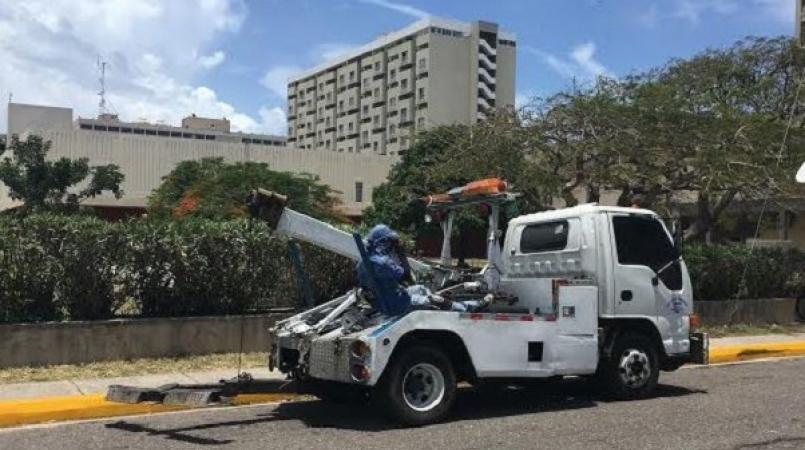Why Caribbean governments must do a better job with their investors

Prime Minister of Antigua and Barbuda, Gaston Browne has taken the decision to with withdraw a concession agreement formed with Sandals Antigua back in 2009 and has admonished the Caribbean hotel chain in a terse letter.
What is particularly disturbing is that Prime Minister Browne is failing to recognise a legally-binding document and is insisting that Sandals 'is failing to pay over' agreed taxes without a single shred of evidence offered.
In the main, Caribbean economies are contracting and there is a greater need for Foreign Direct Investment (FDI). This helps to address unemployment and aids gross domestic product.
The smaller economies of the Caribbean are particularly vulnerable with the governments unable to provide an absorber to the shocks that continually buffet its shores.
All the more reason therefore to work closely with investors and ensure that businesses are adequately able to function.
The Economic Commission for Latin America and the Caribbean (ECLAC) has lowered its growth projection for the economies of the Caribbean to an average of -0.6% for 2016.
“There is greater weakness in internal demand in the region’s countries with the decline in domestic investment accompanied by a deceleration of consumption,” read an ECLAC report on the region.
ECLAC is calling on Caribbean economies to stimulate investment and increase productivity in order to get on a path to long-term sustainable growth, which aids social conditions of the region’s inhabitants.
Sandals has been a leading hotelier in the English-speaking Caribbean for some three decades and now employs 14,000 people in all its markets.
The brand continues to be innovative introducing specialty restaurants, over-water suites, butler services and in-room plunge pools helping to drive tourists to the islands.
In fact in many of the countries where Sandals has a presence, tourism is the largest earner of foreign exchange as well as the leading industry of the economy. So why threaten or hurt the chicken that lays the golden egg?
Such actions by Prime Minister Browne is aimed at a company that is the largest foreign exchange earner in Grenada, St Lucia, Antigua and Barbuda, Jamaica, the Turks and Caicos Islands, as well as the Exumas in The Bahamas. It is also the second-highest earner of foreign exchange in The Bahamas.
This move spells disaster for other Caribbean countries that are seeking their own share of foreign investment and begs the question: 'Why would a government behave this way?'
Concessions for hoteliers are de rigueur and allows the hotel a period to get on its feet, employing people and generating revenue.
To withdraw a concession and claim an investor is not paying taxes despite being audited by some of the world leading firms can cause unwarranted tensions.
The founder of Sandals does not bully Caribbean governments but is an ally of them – helping to market their destinations; employ locals; as well as engage the agricultural sector, the banking sector, the entertainment sector, the telecoms sector and the manufacturing sector. The linkages it provides are second to none.
Then there is the work of the Sandals Foundation in helping communities with projects; Island Routes that serves attractions and other auxiliary industries to the hotel business not to mention The Sandals Corporate University that trains personnel looking for a rewarding career in the Caribbean’s leading industry.
In all the countries where one will find a Sandals hotel other than the Turks& Caicos, Islands, less than 5 per cent of the workforce holds work permits. Sandals employs more CARICOM nationals than any other company operating in the region. So why put that at risk?
Looking at Antigua’s neighbour Grenada, Sandals La Source has 225 keys and will add a further 32 keys next month making it the largest all-suite hotel on the island, with a total of 257 keys, employing hundreds of people.
Now would the government of Grenada do anything untoward to inhibit the success of the hotel and thereby injure its own economy?
Grenada’s Keith Mitchell is regarded as one of the most progressive leaders in the Caribbean and has continually called for businesses to invest in the Caribbean going above and beyond to facilitate investors. Why can’t Gaston Browne take a page from his book?
A few years ago, you had the police storm the headquarters of one of the region’s biggest companies with automatic rifles causing pandemonium and scaring staff. Why? On the pretext that the company owed taxes.
To this very day, the government’s relevant ministers cannot proffer an explanation for this action and all it served to do was to make the investor wary, circumspect and perhaps even contemplate relocating elsewhere to the detriment of the country’s economy and citizens.
Sandals has reportedly had to endure an atrocious 'witch-hunt' which has seen past-employees being called upon to say negative things about the company's operations in Antigua.
Applying heavy-handed draconian measures on an investor who has taken the considerable risk to establish a business in your Caribbean island only serves to help drive the investor away or at best creates acrimony. You catch more bees with honey rather than swatting them.





No comments